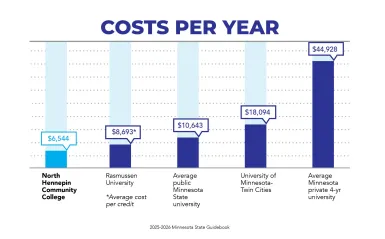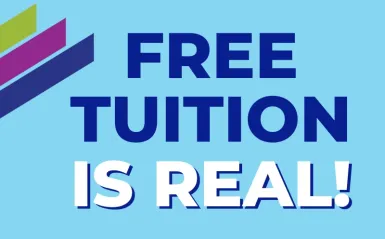Program Update
The Corrections Certificate program will no longer be offered at NHCC. This means we are no longer accepting new students into the program. If you're a current NHCC student in the Corrections Certificate program, you can complete the program, and we encourage you to meet with your academic advisor to plan your remaining courses.
Paying for College
NHCC's tuition is among the most affordable in Minnesota.
Financial Aid
- Scholarships are money you don't have to repay
- Grants are money you don't have to repay
Free College Tuition
The North Star Promise scholarship program provides free college tuition to eligible students. Find out if you might be eligible.
Program Roadmaps
Program roadmaps provide students with a guide to understand the recommended course sequence to complete their degree.
Get Started
If you're ready to get started, apply to NHCC. If you'd like to learn more, you can visit campus or request information.

